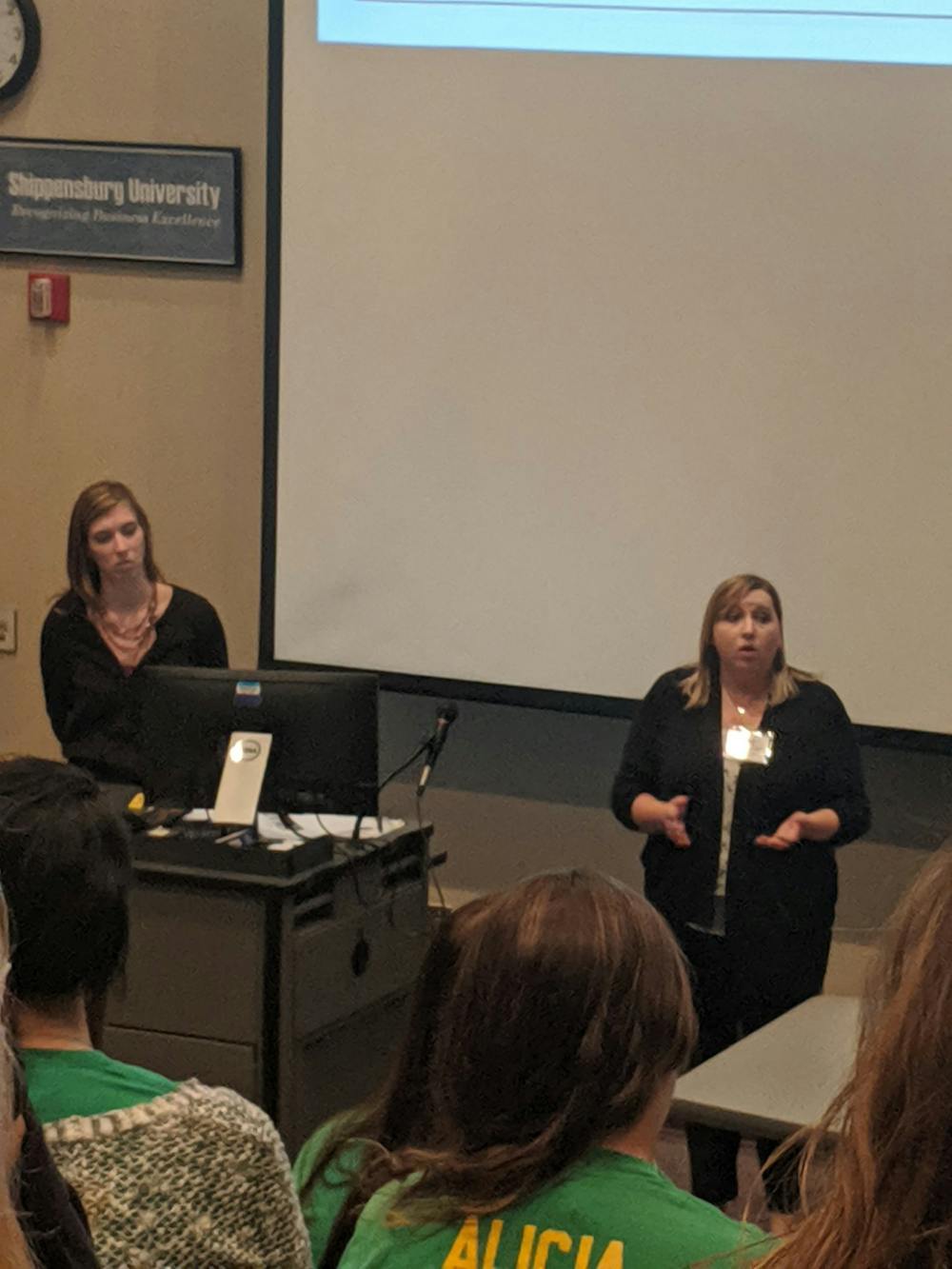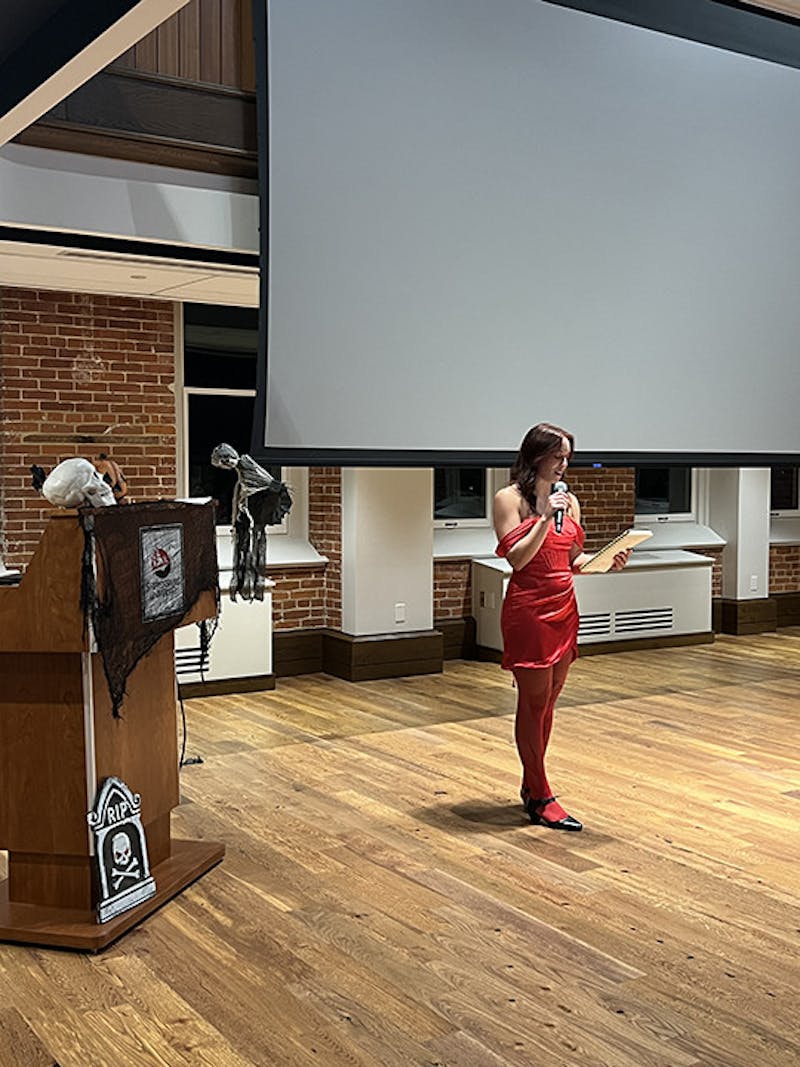Fifty-one point one percent of female victims of rape report it was done by someone they were intimate partners with compared to 40.8% being done by someone they are just familiar with, according to the #MeToo movement website.
Shippensburg University alumae Emily Ott and Gabby Dietrich gave an educational presentation about the #MeToo movement in the Grove Forum on Oct. 23, highlighting signs people should look for in a relationship that indicate abuse.
Ott, who works at Domestic Violence Services of Cumberland & Perry Counties, led the discussion by going through topics including how to determine red flags and how confidentiality works when it comes to reporting abuse.
“When police come to our door [Domestic Violence Services], we will not let them in,” Ott said.
It is Domestic Violence Services’ job to ensure victims feel safe and not feel pressured when talking to authorities.
Dietrich, who works at the YWCA, mentioned the effects social media has when it comes to the #MeToo movement.
“MeToo gets lost in social media,” Dietrich said.
Both speakers mentioned how a woman named Tanara Burke started the #MeToo movement in 2006 to raise awareness of sexual abuse.
Ott explained how red flags appear subtle at first and then expand overtime, causing people to not register something is wrong in their relationship.
When asked why people are afraid to speak up, Ott and Dietrich explained how children and pets are often used as leverage. They also said victims are afraid to speak up on the chance they could be harmed.
Women's and Gender Studies professor Becky Ward believes people can learn how to support others in their time of need.
"People do not speak up," Ward said, referring to people noticing a pattern in a relationship.
Ott and Dietrich talked about the One Love Foundation, which started in 2010 to honor the life of Yeardley Love, who was murdered by her boyfriend. The foundation was made to help people distinguish between healthy and non-healthy relationships.
Ott believes everyone who attended can take something away from the presentation.
"Everyone has experienced some type of trauma in their lifetime," Ott said.
One of the major takeaways from the presentation was the focus on barriers people face when it comes to abuse. Barriers include financial issues, trauma, disabilities and believing abuse in normal in a relationship.
The SU campus offers many outlets for people who have went through domestic violence or just need someone to talk to. Students can visit the campus Wellness Center, the Women's Center and others if they need to talk.




The Slate welcomes thoughtful discussion on all of our stories, but please keep comments civil and on-topic. Read our full guidelines here.